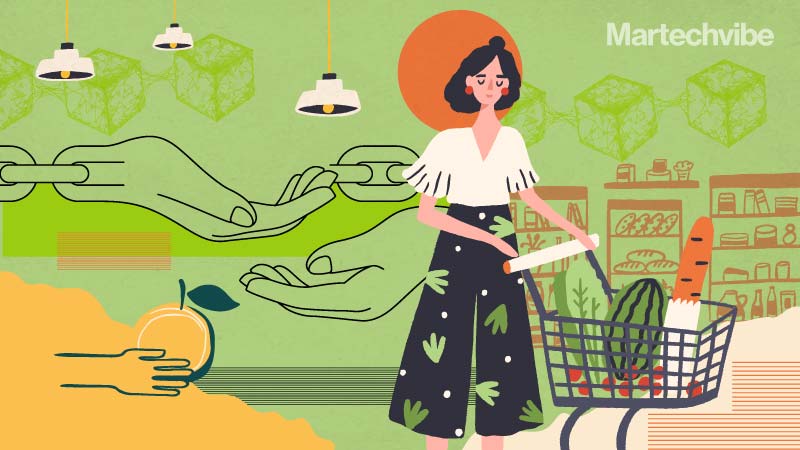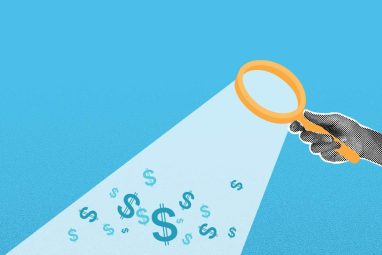The Story Behind Your Strawberries
When food supply chains meet blockchain, grocers can not only promise goods that are fresher and delivered faster but also use the data to tell customers the story from farm to fork How do you like your toast? With a generous serving of cynicism and a hot coffee, if we are to go by current […]
Topics

When food supply chains meet blockchain, grocers can not only promise goods that are fresher and delivered faster but also use the data to tell customers the story from farm to fork

How do you like your toast? With a generous serving of cynicism and a hot coffee, if we are to go by current consumer trends. According to a report conducted by Havas Media Group in which it surveyed 395,000 people globally, consumers have entered the “age of cynicism”. Brand trust is at an all-time low; only 36 per cent of respondents said they feel satisfied with how companies’ work to make the world a better place in the report.
During the pandemic, consumers were increasingly concerned about the environmental impact of their buying decisions. Moreover, they are demanding more information about the food they buy–where it is sourced from, the authenticity of the ingredients, and the circumstances in which it was produced. Add consumer trust and the growing focus on ESG claims to the long list of pending concerns such as food mislabeling, adulterating, misrepresenting country of origin, misrepresenting weight, misrepresenting nutrition information and repackaging. Did you know that food fraud reportedly costs the global food industry $49 billion each year?
Business value for all participants
This is an urgent challenge for grocers, and blockchain may be the answer to add more transparency to the supply chain by increasing visibility across the ecosystem — including producers, freight-forwarders, ports and shipping firms, distributors, wholesalers and merchants.
In the year 2020, IBM Food Trust partnered with Walmart to use blockchain for tracing fresh produce and other food products. A blockchain is a distributed, or decentralised, ledger—a digital system for transactions among multiple parties in an immutable way, cutting out the risk of tampering with records.
It’s also a fairly democratic process where every party is involved. Participants are given a digital signature which works as a unique identifier to authenticate the blocks that they add to. Blockchain applications for supply chains offer the flexibility to create a unique set rules for governance. Since this blockchain isn’t centrally stored, there’s no single point of weakness. Since it is not controlled by one centralised entity, it can’t be hacked or compromised.
Blockchain is being leveraged across industries, but the use case for food supply traceability is urgent. This is especially true with the shift towards quick commerce, where grocery stores are competing to deliver essentials in a time frame of 10 to 20 minutes. Dark stores are another concept that uses RFID and IoT technologies in a big way to reduce turn-around-time. The fact that these technologies can easily integrate with blockchain ledgers via warehouse tracking is a bonus. Rapidly changing market environements mean stores need greater insight into bottlenecks or parts of the circuit that can be optimised to reduce costs and waste. Considering this is a competitive market, often working with local players, margins are slim, and deadlines are tight but customer expectations remain at an all-time high.
Wholechain is a US-based company that offers blockchain based traceability solutions. It was founded in 2018 and a year into its pilot, the company announced a collaboration with Mastercard focused on helping retailers trace seafood’s origins to ensure it is high quality and sustainably sourced. This may seem like a logistical problem but it isn’t one that stops at the store shelf.
Telling a story through data
Carrefour, which has been a member of the IBM Foot Trust initiative since 2018, extends the transparency that blockchain brings to consumers, who can access data on the product by scanning a QR code with their mobile phones. In fact, the French retail giant has credited their blockchain integration for increased sales of selected products that are tracked from farms to store shelves. The products include perishables like chicken, eggs, raw milk, oranges and cheese. Particularly for perishable items, smart supply chains come equipped with a refrigerated container that uses IoT devices to monitor the temperature and report unsafe fluctuations. This information is recorded on the blockchain. The reverse is also possible. For example, if a company discovers a faulty product, the blockchain helps track possible reasons, identify the suppliers involved, and spot production and shipment batches associated with it. This leads to quicker action and possibly fewer complaints.
In February 2021, Majid Al Futtaim, the conglomerate that operates the Carrefour franchise in the UAE joined the blockchain-enabled global ecosystem for the food industry run on IBM Cloud. It is the first retailer in the region to offer this level of transparency to its customers via end-to-end visibility on products. This promises to be a key differentiator for the brand that promotes increased quality, credibility and safety for its shoppers. “Trust in the food supply is becoming increasingly important worldwide, a trend accelerated by changing consumer demands and the subsequent health and wellbeing concerns arising from the COVID-19 pandemic,” said Hani Weiss, Chief Executive Officer, Majid Al Futtaim Retail. “It is therefore imperative for us to invest in ensuring quality throughout the value chain while simultaneously working to build robust customer trust and loyalty.”
The implementation of blockchain in food supply may be nascent, but it promises to revolutionalise the way different actions in the supply chain communicate, capture and share information that is trustworthy and transparent.
If you liked reading this, you might like our other stories









































































































